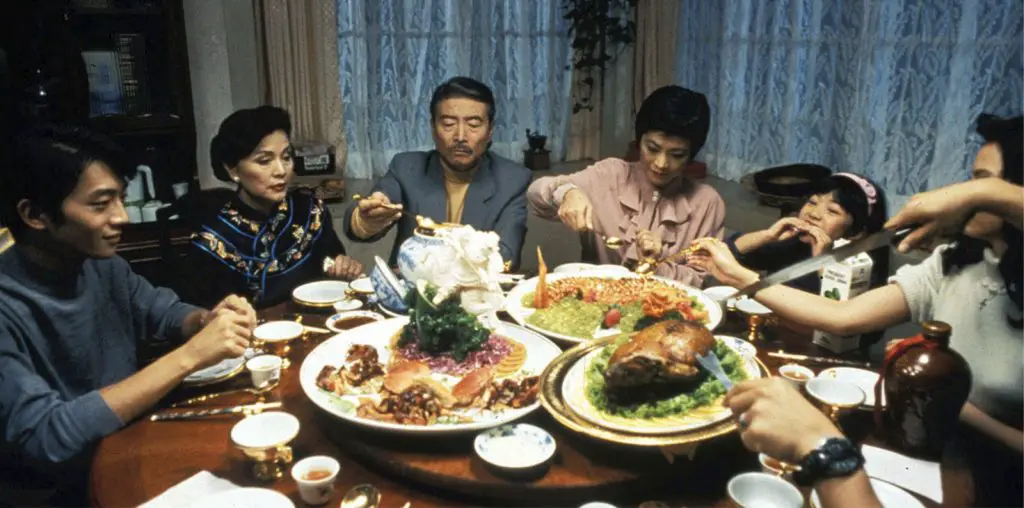
Several tales of love and relationships are woven together around themes of food as cultural connective tissue. This film is filled with small moments of quiet charm, and the sum total adds up to a pleasing, if not deep, package. One of the most remarkable revelations for my Western “gwailo” (white devil) eyes, was just how modern present-day Beijing looks. In many ways, it seems interchangeable with Hong Kong yet they are obviously two very different cities and cultures, and my impressions are purely based upon the superficialities of what they look like on film. And after years of seeing films such as “To Live,” which dissects China’s revolutionary years with a bitter eye, or last year’s grim anti-Communist neo-feminist cautionary tale from Joan Chen, “Xiu Xiu,” I have become accustomed to seeing films by Chinese filmmakers about mainland China that paint the government and society in less than flattering terms. Yes, Virginia, there is an everyday, ordinary Beijing, populated with people, many of whom live simple lives relatively free of persecution or worry. Yet with my post-Tienanmen Square view of China’s present government, as well said government’s constant aggressive posturing towards Taiwan, I eagerly await a film that rips the Reds for their unjust persecutions of Falun Gong members; it’s all too easy for me to assume the worst of the Chinese government. That said, “Spicy Love Soup” avoids politics entirely, and sticks to the comforting broth of love, Mandarin style. It’s also cheerfully entertaining. Was there a film review in there?
